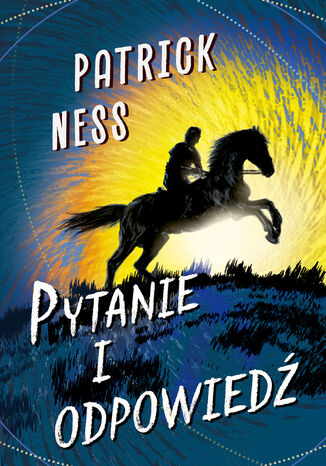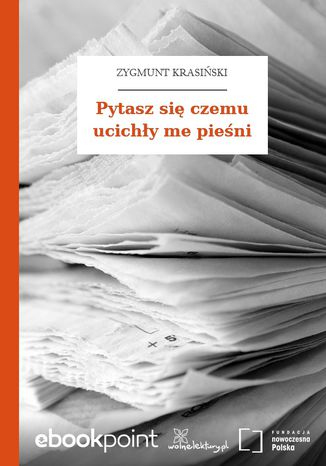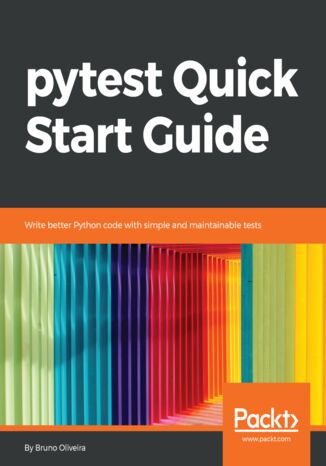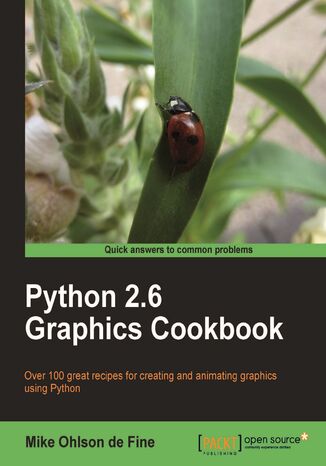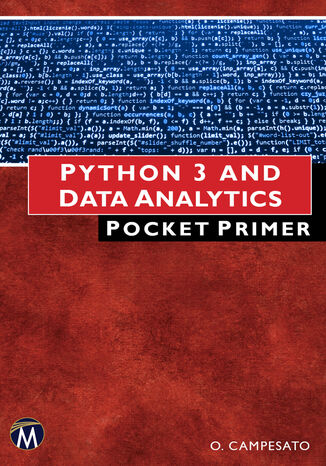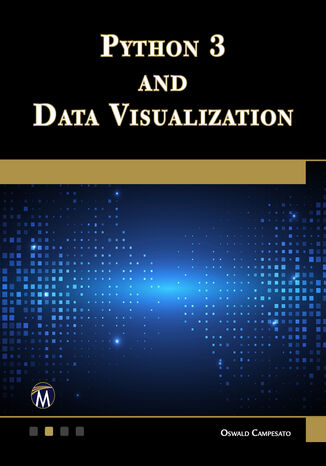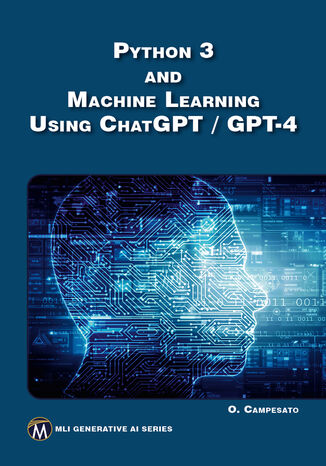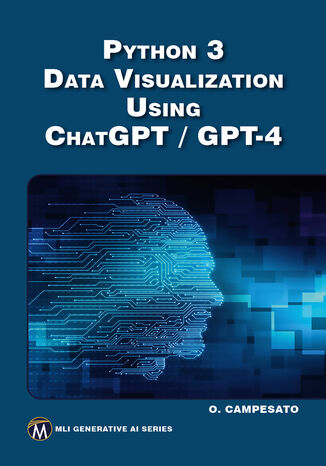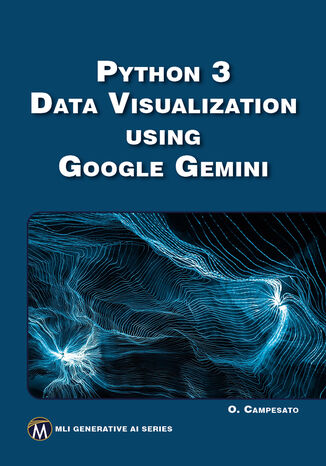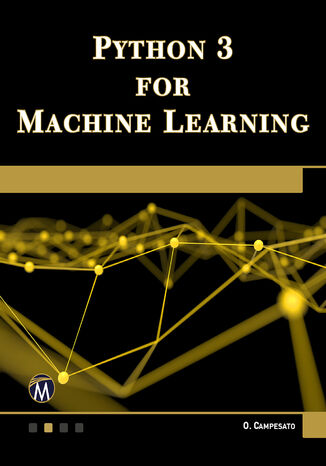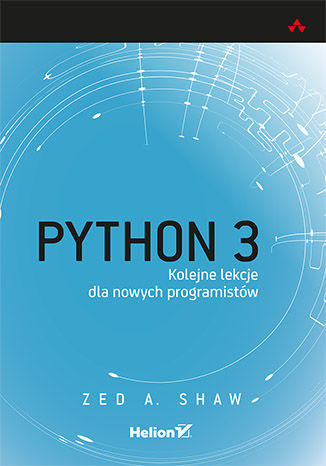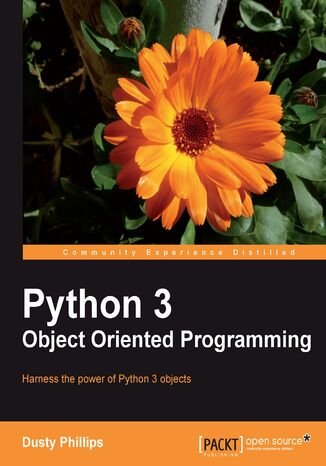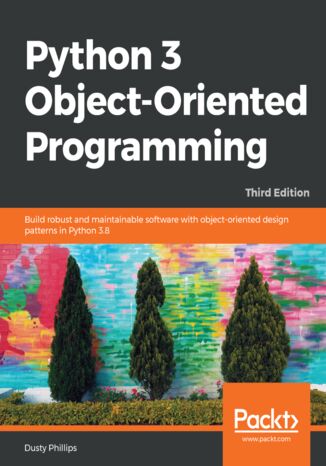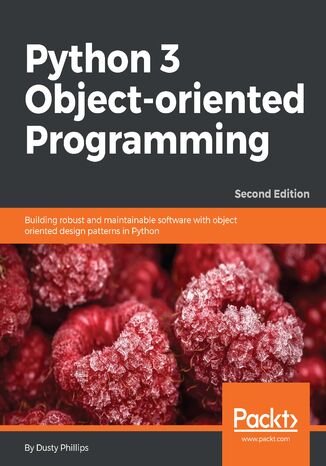Kategorien
E-Books
-
Wirtschaft
- Bitcoin
- Geschäftsfrau
- Coaching
- Controlling
- E-Business
- Ökonomie
- Finanzen
- Börse und Investitionen
- Persönliche Kompetenzen
- Computer im Büro
- Kommunikation und Verhandlungen
- Kleines Unternehmen
- Marketing
- Motivation
- Multimedia-Training
- Immobilien
- Überzeugung und NLP
- Steuern
- Sozialpolitik
- Handbȕcher
- Präsentationen
- Führung
- Public Relation
- Berichte, Analysen
- Geheimnis
- Social Media
- Verkauf
- Start-up
- Ihre Karriere
- Management
- Projektmanagement
- Personal (HR)
-
Für Kinder
-
Für Jugendliche
-
Bildung
-
Enzyklopädien, Wörterbücher
-
E-Presse
- Architektura i wnętrza
- Sicherheit und Gesundheit am Arbeitsplatz
- Biznes i Ekonomia
- Haus und Garten
- E-Business
- Ekonomia i finanse
- Esoterik
- Finanzen
- Persönliche Finanzen
- Unternehmen
- Fotografie
- Informatik
- HR und Gehaltsabrechnung
- Frauen
- Computer, Excel
- Buchhaltung
- Kultur und Literatur
- Wissenschaftlich und akademisch
- Umweltschutz
- meinungsbildend
- Bildung
- Steuern
- Reisen
- Psychologie
- Religion
- Landwirtschaft
- Buch- und Pressemarkt
- Transport und Spedition
- Gesundheit und Schönheit
-
Geschichte
-
Informatik
- Office-Programme
- Datenbank
- Bioinformatik
- IT Branche
- CAD/CAM
- Digital Lifestyle
- DTP
- Elektronik
- Digitale Fotografie
- Computergrafik
- Spiele
- Hacking
- Hardware
- IT w ekonomii
- Wissenschaftliche Pakete
- Schulbücher
- Computergrundlagen
- Programmierung
- Mobile-Programmierung
- Internet-Server
- Computernetzwerke
- Start-up
- Betriebssysteme
- Künstliche Inteligenz
- Technik für Kinder
- Webmaster
-
Andere
-
Fremdsprachen lernen
-
Kultur und Kunst
-
Lektüre
-
Literatur
- Anthologien
- Ballade
- Biografien und Autobiografien
- Für Erwachsene
- Drama
- Tagebücher, Memoiren, Briefe
- Epos
- Essay
- Science Fiction
- Felietonys
- Fiktion
- Humor, Satire
- Andere
- Klassisch
- Krimi
- Sachbücher
- Belletristik
- Mity i legendy
- Nobelpreisträger
- Kurzgeschichten
- Gesellschaftlich
- Okultyzm i magia
- Erzählung
- Erinnerungen
- Reisen
- Gedicht
- Poesie
- Politik
- Populärwissenschaftlich
- Roman
- Historischer Roman
- Prosa
- Abenteuer
- Journalismus
- Reportage
- Romans i literatura obyczajowa
- Sensation
- Thriller, Horror
- Interviews und Erinnerungen
-
Naturwissenschaften
-
Sozialwissenschaften
-
Schulbücher
-
Populärwissenschaft und akademisch
- Archäologie
- Bibliotekoznawstwo
- Filmwissenschaft
- Philologie
- Polnische Philologie
- Philosophie
- Finanse i bankowość
- Erdkunde
- Wirtschaft
- Handel. Weltwirtschaft
- Geschichte und Archäologie
- Kunst- und Architekturgeschichte
- Kulturwissenschaft
- Linguistik
- Literaturwissenschaft
- Logistik
- Mathematik
- Medizin
- Geisteswissenschaften
- Pädagogik
- Lehrmittel
- Populärwissenschaftlich
- Andere
- Psychologie
- Soziologie
- Theatrologie
- Teologie
- Theorien und Wirtschaftswissenschaften
- Transport i spedycja
- Sportunterricht
- Zarządzanie i marketing
-
Handbȕcher
-
Spielanleitungen
-
Professioneller und fachkundige Leitfaden
-
Jura
- Sicherheit und Gesundheit am Arbeitsplatz
- Geschichte
- Verkehrsregeln. Führerschein
- Rechtswissenschaften
- Gesundheitswesen
- Allgemeines. Wissenskompendium
- akademische Bücher
- Andere
- Bau- und Wohnungsrecht
- Zivilrecht
- Finanzrecht
- Wirtschaftsrecht
- Wirtschafts- und Handelsrecht
- Strafrecht
- Strafrecht. Kriminelle Taten. Kriminologie
- Internationales Recht
- Internationales und ausländisches Recht
- Gesundheitsschutzgesetz
- Bildungsrecht
- Steuerrecht
- Arbeits- und Sozialversicherungsrecht
- Öffentliches, Verfassungs- und Verwaltungsrecht
- Familien- und Vormundschaftsrecht
- Agrarrecht
- Sozialrecht, Arbeitsrecht
- EU-Recht
- Industrie
- Agrar- und Umweltschutz
- Wörterbücher und Enzyklopädien
- Öffentliche Auftragsvergabe
- Management
-
Führer und Reisen
- Afrika
- Alben
- Südamerika
- Mittel- und Nordamerika
- Australien, Neuseeland, Ozeanien
- Österreich
- Asien
- Balkan
- Naher Osten
- Bulgarien
- China
- Kroatien
- Tschechische Republik
- Dänemark
- Ägypten
- Estland
- Europa
- Frankreich
- Berge
- Griechenland
- Spanien
- Niederlande
- Island
- Litauen
- Lettland
- Mapy, Plany miast, Atlasy
- Miniführer
- Deutschland
- Norwegen
- Aktive Reisen
- Polen
- Portugal
- Andere
- Przewodniki po hotelach i restauracjach
- Russland
- Rumänien
- Slowakei
- Slowenien
- Schweiz
- Schweden
- Welt
- Türkei
- Ukraine
- Ungarn
- Großbritannien
- Italien
-
Psychologie
- Lebensphilosophien
- Kompetencje psychospołeczne
- zwischenmenschliche Kommunikation
- Mindfulness
- Allgemeines
- Überzeugung und NLP
- Akademische Psychologie
- Psychologie von Seele und Geist
- Arbeitspsychologie
- Relacje i związki
- Elternschafts- und Kinderpsychologie
- Problemlösung
- Intellektuelle Entwicklung
- Geheimnis
- Sexualität
- Verführung
- Aussehen ind Image
- Lebensphilosophien
-
Religion
-
Sport, Fitness, Diäten
-
Technik und Mechanik
Hörbücher
-
Wirtschaft
- Bitcoin
- Geschäftsfrau
- Coaching
- Controlling
- E-Business
- Ökonomie
- Finanzen
- Börse und Investitionen
- Persönliche Kompetenzen
- Kommunikation und Verhandlungen
- Kleines Unternehmen
- Marketing
- Motivation
- Immobilien
- Überzeugung und NLP
- Steuern
- Sozialpolitik
- Handbȕcher
- Präsentationen
- Führung
- Public Relation
- Geheimnis
- Social Media
- Verkauf
- Start-up
- Ihre Karriere
- Management
- Projektmanagement
- Personal (HR)
-
Für Kinder
-
Für Jugendliche
-
Bildung
-
Enzyklopädien, Wörterbücher
-
E-Presse
-
Geschichte
-
Informatik
-
Andere
-
Fremdsprachen lernen
-
Kultur und Kunst
-
Lektüre
-
Literatur
- Anthologien
- Ballade
- Biografien und Autobiografien
- Für Erwachsene
- Drama
- Tagebücher, Memoiren, Briefe
- Epos
- Essay
- Science Fiction
- Felietonys
- Fiktion
- Humor, Satire
- Andere
- Klassisch
- Krimi
- Sachbücher
- Belletristik
- Mity i legendy
- Nobelpreisträger
- Kurzgeschichten
- Gesellschaftlich
- Okultyzm i magia
- Erzählung
- Erinnerungen
- Reisen
- Poesie
- Politik
- Populärwissenschaftlich
- Roman
- Historischer Roman
- Prosa
- Abenteuer
- Journalismus
- Reportage
- Romans i literatura obyczajowa
- Sensation
- Thriller, Horror
- Interviews und Erinnerungen
-
Naturwissenschaften
-
Sozialwissenschaften
-
Populärwissenschaft und akademisch
- Archäologie
- Philosophie
- Wirtschaft
- Handel. Weltwirtschaft
- Geschichte und Archäologie
- Kunst- und Architekturgeschichte
- Kulturwissenschaft
- Literaturwissenschaft
- Mathematik
- Medizin
- Geisteswissenschaften
- Pädagogik
- Lehrmittel
- Populärwissenschaftlich
- Andere
- Psychologie
- Soziologie
- Teologie
- Zarządzanie i marketing
-
Handbȕcher
-
Professioneller und fachkundige Leitfaden
-
Jura
-
Führer und Reisen
-
Psychologie
- Lebensphilosophien
- zwischenmenschliche Kommunikation
- Mindfulness
- Allgemeines
- Überzeugung und NLP
- Akademische Psychologie
- Psychologie von Seele und Geist
- Arbeitspsychologie
- Relacje i związki
- Elternschafts- und Kinderpsychologie
- Problemlösung
- Intellektuelle Entwicklung
- Geheimnis
- Sexualität
- Verführung
- Aussehen ind Image
- Lebensphilosophien
-
Religion
-
Sport, Fitness, Diäten
-
Technik und Mechanik
Videokurse
-
Datenbank
-
Big Data
-
Biznes, ekonomia i marketing
-
Cybersicherheit
-
Data Science
-
DevOps
-
Für Kinder
-
Elektronik
-
Grafik / Video / CAX
-
Spiele
-
Microsoft Office
-
Entwicklungstools
-
Programmierung
-
Persönliche Entwicklung
-
Computernetzwerke
-
Betriebssysteme
-
Softwaretest
-
Mobile Geräte
-
UX/UI
-
Web development
-
Management
Podcasts
Pytanie glinianego garnka. Kazania krótkie o wojnie i pokoju
Dlaczego tyle śmierci? Ludzkiego cierpienia? Dlaczego zło? Dlaczego Bóg dopuszcza to wszystko? Gdzie On w ogóle jest? – są to pytania obecne od początku chrześcijaństwa, ale wracają ze wzmożoną siłą za każdym razem, gdy w polu widzenia pojawia się jakiś kataklizm lub widmo cierpienia. Pytania typu „dlaczego?” jakoś zawsze były obecne, jeżeli nie jawnie, to przynajmniej ukryte w podtekście, ale zastanawiałem się także czego nas wojna może nauczyć. Bo że jest lekcją – bolesną! – nie ulega wątpliwości. Ten zbiorek rozważań jest objętościowo niewielki. Nie czekałem, aż uzbiera się ich więcej. Chciałem, by jak najprędzej trafiły do rąk czytelników. Człowiek ma silny instynkt samozachowawczy: nawet krytyczne sytuacje, gdy są rozciągnięte w czasie, stają się rutyną. Dlatego moimi przemyśleniami, podejmowanymi „na gorąco”, pragnę podzielić się z czytelnikami, dopóki mogą je przyjąć również „na gorąco”.
Kontynuacja bestsellera Patricka Nessa Na ostrzu noża, na podstawie którego został nakręcony film z Daisy Ridley i Tomem Hollandem w rolach głównych, który wejdzie na ekrany kin w 2021 roku. Witajcie w Nowym Prentisstown! W mieście, które zadaje więcej pytań, niż daje odpowiedzi, w świecie, w którym wszystkie żywe stworzenia słyszą swoje myśli w niemilknącym strumieniu dźwięków, słów i obrazów zwanym Szumem. Uwięziony i oddzielony od Violi Todd zostaje zmuszony do podporządkowania się rozkazom burmistrza Prentissa, który teraz mianował się prezydentem. Todd oswaja się z nową rzeczywistością, ale pytania i wątpliwości nie przestają go dręczyć. Gdzie jest Viola? Co się dzieje poza miastem? Czym jest tajemnicza Odpowiedź? Aż pewnego dnia miastem wstrząsają wybuchy i nieuchronnie zbliża się finalna bitwa. Pytanie i Odpowiedź to mocna i poruszająca opowieść o terrorze i oporze przeciwko niemu, które mają tak wiele twarzy.
Pytasz się czemu ucichły me pieśni
Pytasz się czemu ucichły me pieśni Pytasz się czemu ucichły me pieśni I jęk się często z mych piersi odzywa ? Bo w snach się moich nic dobrego nie śni, I słowik tylko po święty Wit śpiewa. Straszne się w duszy naradza przeczucie. [...]Zygmunt KrasińskiUr. 19 lutego 1812 r. w Paryżu Zm. 23 lutego 1859 r. w Paryżu Najważniejsze dzieła: Nie-Boska komedia; Irydion; Psalmy przyszłości; O Stanowisku Polski oraz bloki korespondencji (m.in. do Delfiny Potockiej, Henryka Reeve, Augusta Cieszkowskiego, Bronisława Trentowskiego) Dramatopisarz, poeta i prozaik, przedstawiciel polskiego romantyzmu (jeden z tzw. trójcy wieszczów). Najwybitniejsze dzieło, Nie-Boską komedię, prozatorski dramat romantyczny o rewolucji, przedstawiający racje i winy obu walczących stron, opublikował mając zaledwie 23 lata (1835). Z czasem przeszedł na pozycje ultrakonserwatywne (por. Psalmy przyszłości publ. pod pseud. Spirydion Prawdzicki). Twórca radykalnej odmiany mesjanizmu polskiego. Tytuł hrabiowski rodzina Krasińskiego uzyskała od Napoleona. Trzyletni Zygmunt pełnił funkcję adiutanta następcy tronu Cesarstwa Francji (swego rówieśnika) i na uroczystościach nosił stosowny do tej funkcji mundur. Kupując książkę wspierasz fundację Nowoczesna Polska, która propaguje ideę wolnej kultury. Wolne Lektury to biblioteka internetowa, rozwijana pod patronatem Ministerstwa Edukacji Narodowej. W jej zbiorach znajduje się kilka tysięcy utworów, w tym wiele lektur szkolnych zalecanych do użytku przez MEN, które trafiły już do domeny publicznej. Wszystkie dzieła są odpowiednio opracowane - opatrzone przypisami oraz motywami.
Adam Mickiewicz Liryki lozańskie Pytasz, za co Bóg Pytasz, za co Bóg trochą sławy mnie ozdobił? Za to, com myślał i chciał nie za to, com zrobił! Myśli i chęci jest to poezyja w świecie: Wykwita i opada, jak kwiat w jednym lecie. Lecz uczynki, jak ziarna, w głąb ziemi zaryte, Aż na przyszły rok ziarna wydadzą obfite. Przyjdzie czas, gdy błyszczące imiona pogniją, Z c... Adam Mickiewicz Ur. 24 grudnia 1798 r. w Zaosiu koło Nowogródka Zm. 26 listopada 1855 r. w Konstantynopolu (dziś: Stambuł) Najważniejsze dzieła: Ballady i romanse (1822), Grażyna (1823), Sonety krymskie (1826), Konrad Wallenrod (1828), Dziady (cz.II i IV 1823, cz.III 1832), Księgi narodu polskiego i pielgrzymstwa polskiego (1833), Pan Tadeusz (1834); wiersze: Oda do młodości (1820), Do Matki Polki (1830), Śmierć pułkownika (1831), Reduta Ordona (1831) Polski poeta i publicysta okresu romantyzmu (czołowy z trójcy wieszczów). Syn adwokata, Mikołaja (zm. 1812) herbu Poraj oraz Barbary z Majewskich. Ukończył studia na Wydziale Literatury Uniwersytetu Wileńskiego; stypendium odpracowywał potem jako nauczyciel w Kownie. Był współzałożycielem tajnego samokształceniowego Towarzystwa Filomatów (1817), za co został w 1823 r. aresztowany i skazany na osiedlenie w głębi Rosji. W latach 1824-1829 przebywał w Petersburgu, Moskwie i na Krymie; następnie na emigracji w Paryżu. Wykładał literaturę łacińską na Akademii w Lozannie (1839), a od 1840 r. literaturę słowiańską w College de France w Paryżu. W 1841 r. związał się z ruchem religijnym A. Towiańskiego. W okresie Wiosny Ludów był redaktorem naczelnym fr. dziennika Trybuna Ludów i organizatorem ochotniczego Zastępu Polskiego, dla którego napisał demokratyczny Skład zasad. autor: Cezary Ryska Kupując książkę wspierasz fundację Nowoczesna Polska, która propaguje ideę wolnej kultury. Wolne Lektury to biblioteka internetowa, rozwijana pod patronatem Ministerstwa Edukacji Narodowej. W jej zbiorach znajduje się kilka tysięcy utworów, w tym wiele lektur szkolnych zalecanych do użytku przez MEN, które trafiły już do domeny publicznej. Wszystkie dzieła są odpowiednio opracowane - opatrzone przypisami oraz motywami.
pytest Quick Start Guide. Write better Python code with simple and maintainable tests
Python's standard unittest module is based on the xUnit family of frameworks, which has its origins in Smalltalk and Java, and tends to be verbose to use and not easily extensible.The pytest framework on the other hand is very simple to get started, but powerful enough to cover complex testing integration scenarios, being considered by many the true Pythonic approach to testing in Python.In this book, you will learn how to get started right away and get the most out of pytest in your daily work?ow, exploring powerful mechanisms and plugins to facilitate many common testing tasks. You will also see how to use pytest in existing unittest-based test suites and will learn some tricks to make the jump to a pytest-style test suite quickly and easily.
Mike Ohlson de Fine, Michael J Ohlson
Python is a great object-oriented and interactive programming language that lets you develop graphics, both static and animated, using built-in vector graphics functions that are provided with Python.Python 2.6 Graphics Cookbook is a collection of straightforward recipes and illustrative screenshots for creating and animating graphic objects using the Python language. This book makes the process of developing graphics interesting and entertaining by working in a graphic workspace without the burden of mastering complicated language definitions and opaque examples.If you choose to work through all the recipes from the beginning, you will learn to install Python and create basic programs for making lines and shapes using the built-in Tkinter module. The confusing topic of color manipulation is explored in detail using existing Python tools as well as some new tools in the recipes. Next you will learn to manipulate font size, color, and placement of text as placing text exactly where you want on a screen can be tricky because font height, inter-character spacing, and text window dimensions all interfere with each other. Then you will learn how to animate graphics, for example having more than one independent graphic object co-exist and interact using various Python methods.You will also learn how you can work with raster images, such as converting their formats using the Python Imaging Library. Next you will learn how you can combine vector images with raster images so that you can animate the raster images with ease. You will also walk through a set of recipes with the help of which you can handle and manipulate blocks of raw data that may be hundreds of megabytes in size using datastreams, files, and hard drives. You will also learn how you can use Inkscape to dismantle existing images and use parts of them for your own graphics and Python programs. At the end of the book you will learn how you can create GUIs for different purposes.
Python 3 and Data Analytics Pocket Primer. A Quick Guide to NumPy, Pandas, and Data Visualization
Mercury Learning and Information, Oswald Campesato
This book, part of the best-selling Pocket Primer series, introduces readers to the fundamental concepts of data analytics using Python 3. The course begins with a concise introduction to Python, covering essential programming constructs and data manipulation techniques. This foundation sets the stage for deeper dives into data analytics, emphasizing the importance of data cleaning, a critical step in any data analysis process.Following the Python basics, the course explores powerful libraries such as NumPy and Pandas for efficient data handling and manipulation. It then delves into statistical concepts, providing the necessary background for understanding data distributions and analytical methods. The course culminates in data visualization techniques using Matplotlib and Seaborn, demonstrating how to effectively communicate insights through graphical representations.Throughout the course, numerous code samples and practical examples are provided, reinforcing learning and offering hands-on experience. Companion files with source code and figures are available online, supporting the learning journey. This comprehensive guide equips both beginners and seasoned professionals with the skills needed to excel in data analytics.
Python 3 and Data Visualization. Mastering Graphics and Data Manipulation with Python
Mercury Learning and Information, Oswald Campesato
Python 3 and Data Visualization provides an in-depth exploration of Python 3 programming and data visualization techniques. The course begins with an introduction to Python, covering essential topics from basic data types and loops to advanced constructs such as dictionaries and matrices. This foundation prepares readers for the next section, which focuses on NumPy and its powerful array operations, seamlessly leading into data visualization using prominent libraries like Matplotlib.Chapter 6 delves into Seaborn's rich visualization tools, providing insights into datasets like Iris and Titanic. The appendix covers additional visualization tools and techniques, including SVG graphics and D3 for dynamic visualizations. The companion files include numerous Python code samples and figures, enhancing the learning experience.From foundational Python concepts to advanced data visualization techniques, this course serves as a comprehensive resource for both beginners and seasoned professionals, equipping them with the necessary skills to effectively visualize data.
Mercury Learning and Information, Oswald Campesato
This book bridges the gap between theoretical knowledge and practical application in Python programming, machine learning, and using ChatGPT-4 in data science. It starts with an introduction to Pandas for data manipulation and analysis. The book then explores various machine learning classifiers, from kNN to SVMs. Later chapters cover GPT-4's capabilities, enhancing linear regression analysis, and using ChatGPT in data visualization, including AI apps, GANs, and DALL-E.The journey begins with mastering Pandas and machine learning fundamentals. It progresses to applying GPT-4 in linear regression and machine learning classifiers. The final chapters focus on using ChatGPT for data visualization, making complex results accessible and understandable.Understanding these concepts is crucial for modern data scientists. This book transitions readers from basic Python programming to advanced applications of ChatGPT-4 in data science. Companion files with source code, datasets, and figures enhance learning, making this an essential resource for mastering Python, machine learning, and AI-driven data visualization.
Mercury Learning and Information, Oswald Campesato
This book teaches Python 3 programming and data visualization, exploring cutting-edge techniques with ChatGPT/GPT-4 for generating compelling visuals. It starts with Python essentials, covering basic data types, loops, functions, and advanced constructs like dictionaries and matrices. The journey progresses to NumPy's array operations and data visualization using libraries such as Matplotlib and Seaborn. The book also covers tools like SVG graphics and D3 for dynamic visualizations.The course begins with foundational Python concepts, moves into NumPy and data visualization with Pandas, Matplotlib, and Seaborn. Advanced chapters explore ChatGPT and GPT-4, demonstrating their use in creating data visualizations from datasets like the Titanic. Each chapter builds on the previous one, ensuring a comprehensive understanding of Python and visualization techniques.These concepts are crucial for Python practitioners, data scientists, and anyone in data analytics. This book transitions readers from basic Python programming to advanced data visualization, blending theoretical knowledge with practical skills. Companion files with code, datasets, and figures enhance learning, making this an essential resource for mastering Python and data visualization.
Mercury Learning and Information, Oswald Campesato
This book teaches Python 3 programming and data visualization, exploring cutting-edge techniques with ChatGPT/GPT-4 for generating compelling visuals. It starts with Python essentials, covering basic data types, loops, functions, and advanced constructs like dictionaries and matrices. The journey progresses to NumPy's array operations and data visualization using libraries such as Matplotlib and Seaborn. The book also covers tools like SVG graphics and D3 for dynamic visualizations.The course begins with foundational Python concepts, moves into NumPy and data visualization with Pandas, Matplotlib, and Seaborn. Advanced chapters explore ChatGPT and GPT-4, demonstrating their use in creating data visualizations from datasets like the Titanic. Each chapter builds on the previous one, ensuring a comprehensive understanding of Python and visualization techniques.These concepts are crucial for Python practitioners, data scientists, and anyone in data analytics. This book transitions readers from basic Python programming to advanced data visualization, blending theoretical knowledge with practical skills. Companion files with code, datasets, and figures enhance learning, making this an essential resource for mastering Python and data visualization.
Python 3 for Machine Learning. Harness the Power of Python for Advanced Machine Learning Projects
Mercury Learning and Information, Oswald Campesato
This book introduces basic Python 3 programming concepts related to machine learning. The first four chapters provide a fast-paced introduction to Python 3, NumPy, and Pandas. The fifth chapter covers fundamental machine learning concepts. The sixth chapter dives into machine learning classifiers, such as logistic regression, k-NN, decision trees, random forests, and SVMs. The final chapter includes material on natural language processing (NLP) and reinforcement learning (RL). Keras-based code samples supplement the theoretical discussion.The course begins with Python basics, including conditional logic, loops, functions, and collections. It then explores data manipulation with NumPy and Pandas. The journey continues with an introduction to machine learning, focusing on essential concepts and classifiers. Advanced topics like NLP and RL are covered, ensuring a comprehensive understanding of machine learning.These concepts are crucial for developing machine learning applications. This book transitions readers from basic Python programming to advanced machine learning techniques, blending theory with practical skills. Appendices for regular expressions, Keras, and TensorFlow 2, along with companion files, enhance learning, making this an essential resource for mastering Python and machine learning.
Python 3. Kolejne lekcje dla nowych programistów
Jeśli masz już za sobą napisanie pierwszych programów w Pythonie, to już wiesz, jak bardzo wszechstronny jest ten język i że jego możliwości są imponujące. Python nadaje się do bardzo wielu zastosowań, jednak jeśli chcesz go wykorzystać w pełni, musisz wyjść poza podstawy. Efektywny programista korzysta z wiedzy wykraczającej poza znajomość struktur języka, poza tym jest zdolny do obiektywnej refleksji nad własnymi możliwościami i stara się cały czas doskonalić swój warsztat. Dzięki tej książce, zanim się spostrzeżesz, wykonasz 52 interesujące i świetnie przygotowane projekty, dzięki którym zyskasz kluczowe praktyczne umiejętności i pogłębisz rozumienie sedna pracy programisty. Odkryjesz sposoby analizy problemu i nauczysz się projektować sposób jego implementacji w programie. Później zaczniesz projektować konkretne rozwiązania, dbając o ich prostotę i elegancję. Wystarczy, że wykażesz się dyscypliną, zaangażowaniem i wytrwałością, a już wkrótce zrozumiesz znaczenie procesu, rozwiniesz kreatywność, a przede wszystkim zadbasz o jakość tworzonego kodu. Twoim celem nie będzie już tylko pisanie "kodu, który działa". Zaczniesz tworzyć znakomity kod i staniesz się prawdziwym programistą, biegłym w Pythonie. W tej książce: praca ze złożonymi projektami korzystanie ze struktur danych algorytmy i przetwarzanie struktur danych techniki parsowania i przetwarzania tekstu modelowanie danych za pomocą języka SQL stosowanie prostych i zaawansowanych narzędzi systemu Unix Proces. Kreatywność. Jakość. Python.
Object Oriented Programming is a very important aspect of modern programming languages. The basic principles of Object Oriented Programming are relatively easy to learn. Putting them together into working designs can be challenging.This book makes programming more of a pleasure than a chore using powerful Python 3 object-oriented features of Python 3. It clearly demonstrates the core OOP principles and how to correctly implement OOP in Python. Object Oriented Programming ranks high in importance among the many models Python supports. Yet, many programmers never bother learning the powerful features that make this language object oriented.The book teaches when and how OOP should be correctly applied. It emphasizes not only the simple syntax of OOP in Python, but also how to combine these objects into well-designed software.This book will introduce you to the terminology of the object-oriented paradigm, focusing on object-oriented design with step-by-step examples. It will take you from simple inheritance, one of the most useful tools in the object-oriented programmer's toolbox, all the way through to cooperative inheritance, one of the most complicated. You will be able to raise, handle, define, and manipulate exceptions.You will be able to integrate the object-oriented and the not-so-object-oriented aspects of Python. You will also be able to create maintainable applications by studying higher level design patterns. You'll learn the complexities of string and file manipulation, and how Python distinguishes between binary and textual data. Not one, but two very powerful automated testing systems will be introduced to you. You'll understand the joy of unit testing and just how easy they are to create. You'll even study higher level libraries such as database connectors and GUI toolkits and how they apply object-oriented principles.
Object-oriented programming (OOP) is a popular design paradigm in which data and behaviors are encapsulated in such a way that they can be manipulated together. This third edition of Python 3 Object-Oriented Programming fully explains classes, data encapsulation, and exceptions with an emphasis on when you can use each principle to develop well-designed software.Starting with a detailed analysis of object-oriented programming, you will use the Python programming language to clearly grasp key concepts from the object-oriented paradigm. You will learn how to create maintainable applications by studying higher level design patterns. The book will show you the complexities of string and file manipulation, and how Python distinguishes between binary and textual data. Not one, but two very powerful automated testing systems, unittest and pytest, will be introduced in this book. You'll get a comprehensive introduction to Python's concurrent programming ecosystem.By the end of the book, you will have thoroughly learned object-oriented principles using Python syntax and be able to create robust and reliable programs confidently.
Python 3 is more versatile and easier to use than ever. It runs on all major platforms in a huge array of use cases. Coding in Python minimizes development time and increases productivity in comparison to other languages. Clean, maintainable code is easy to both read and write using Python's clear, concise syntax.Object-oriented programming is a popular design paradigm in which data and behaviors are encapsulated in such a way that they can be manipulated together. Many modern programming languages utilize the powerful concepts behind object-oriented programming and Python is no exception.Starting with a detailed analysis of object-oriented analysis and design, you will use the Python programming language to clearly grasp key concepts from the object-oriented paradigm. This book fully explains classes, data encapsulation, inheritance, polymorphism, abstraction, and exceptions with an emphasis on when you can use each principle to develop well-designed software.You'll get an in-depth analysis of many common object-oriented design patterns that are more suitable to Python's unique style. This book will not just teach Python syntax, but will also build your confidence in how to program.You will also learn how to create maintainable applications by studying higher level design patterns. Following this, you'll learn the complexities of string and file manipulation, and how Python distinguishes between binary and textual data. Not one, but two very powerful automated testing systems will be introduced in the book. After you discover the joy of unit testing and just how easy it can be, you'll study higher level libraries such as database connectors and GUI toolkits and learn how they uniquely apply object-oriented principles. You'll learn how these principles will allow you to make greater use of key members of the Python eco-system such as Django and Kivy.This new edition includes all the topics that made Python 3 Object-oriented Programming an instant Packt classic. It's also packed with updated content to reflect recent changes in the core Python library and covers modern third-party packages that were not available on the Python 3 platform when the book was first published.


